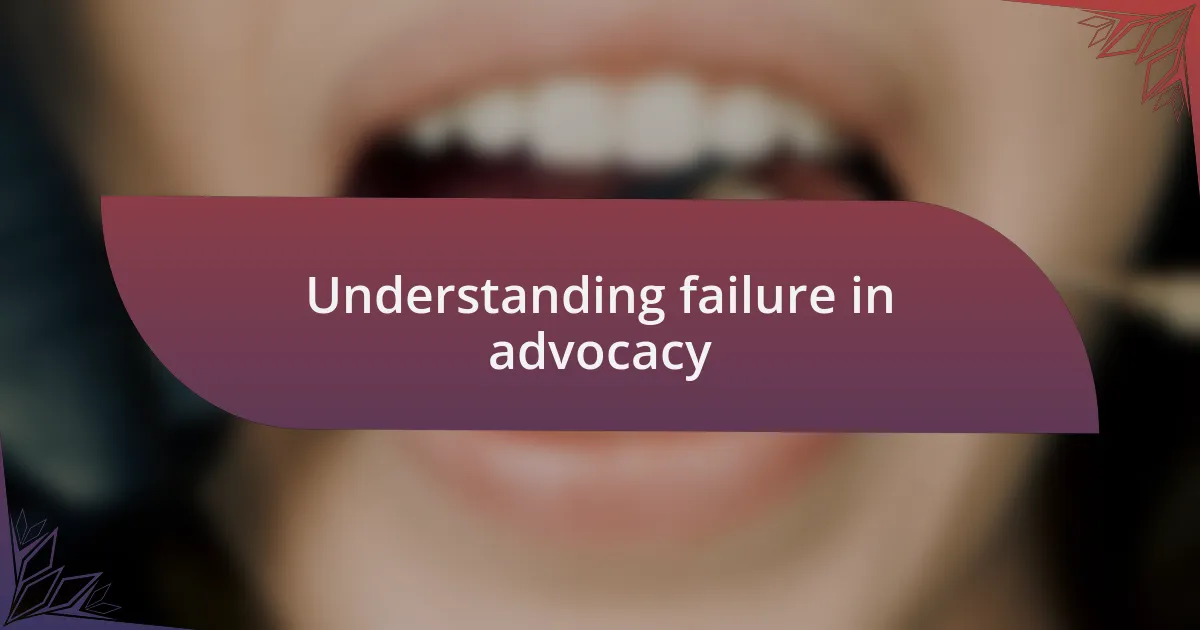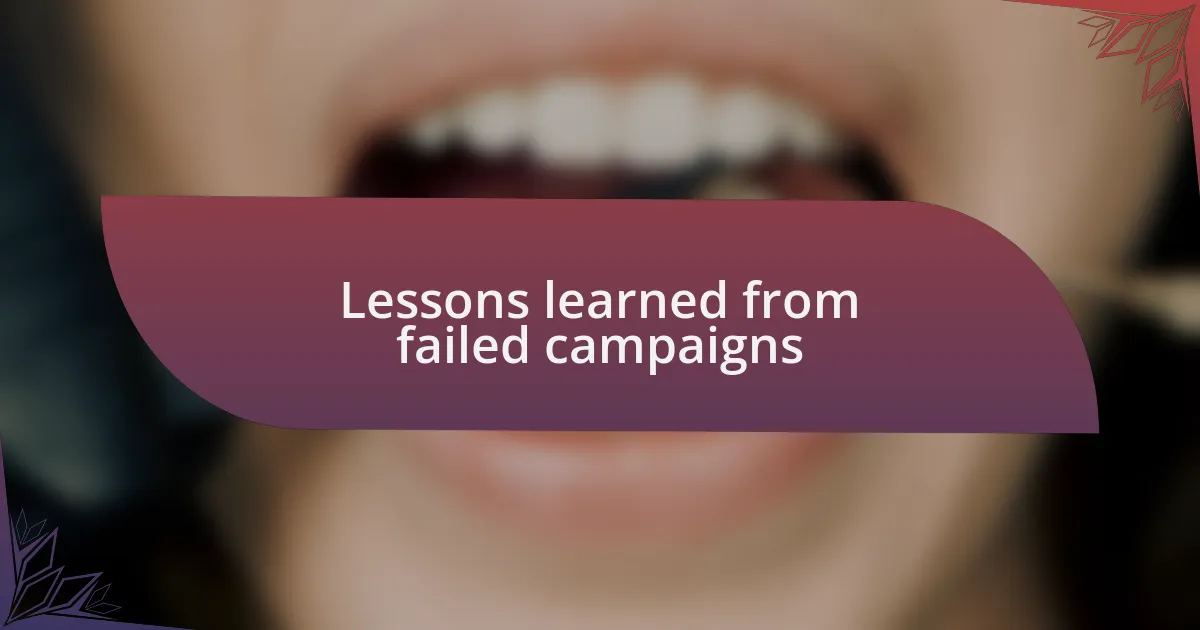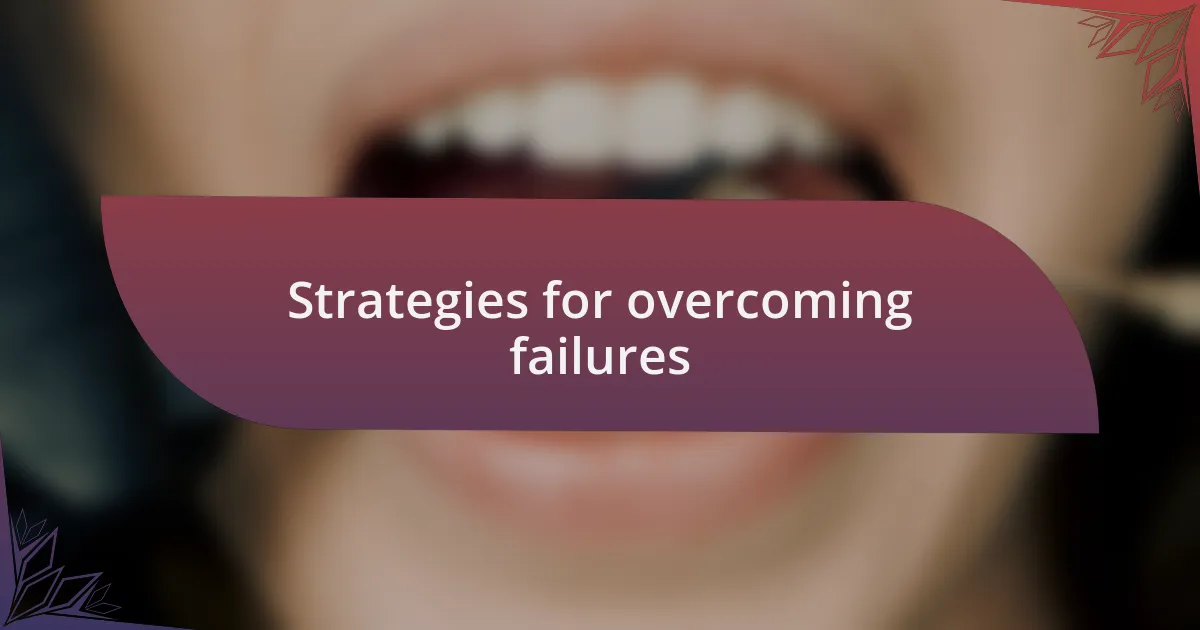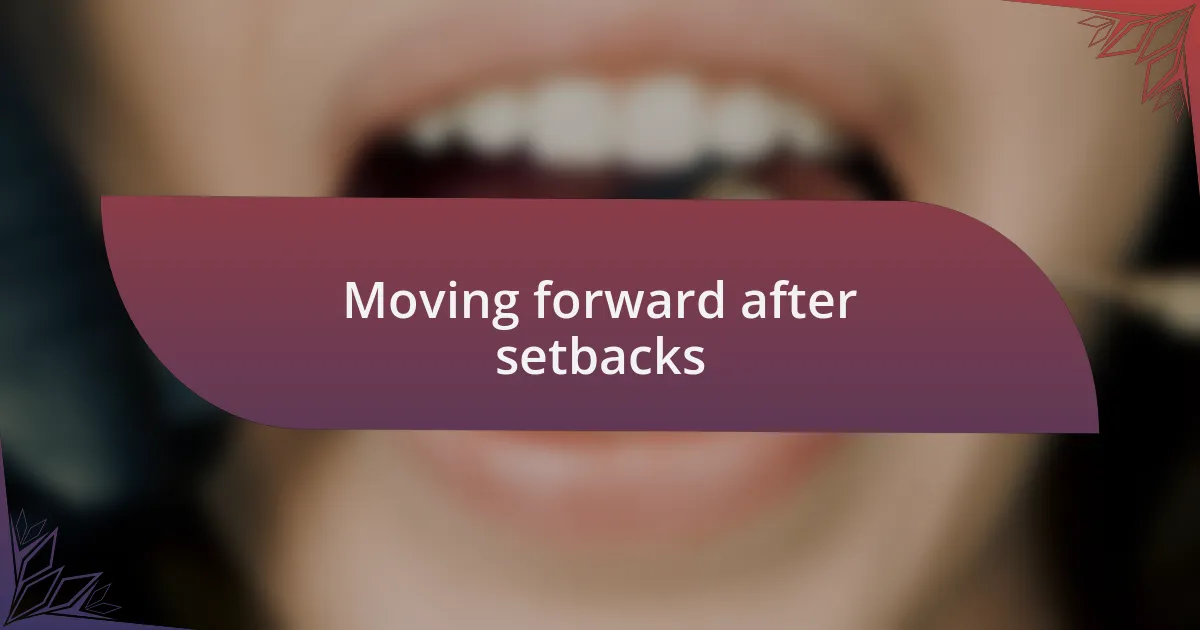Key takeaways:
- Failure in advocacy presents an opportunity for deeper understanding of community needs through active engagement.
- Building genuine relationships and trust within the community is crucial for effective advocacy.
- Flexibility in strategies is essential; adapting messages to community realities enhances engagement.
- Reflection and mentorship can foster resilience and innovation after setbacks in advocacy efforts.

Understanding failure in advocacy
Failure in advocacy can often feel like a heavy weight. I remember a campaign I once spearheaded aimed at increasing access to mental health resources in underserved communities. Despite my best efforts, it flopped, leaving me questioning whether I truly understood the needs of those I aimed to help. Why did that happen? It turned out I hadn’t engaged the community effectively to understand their specific barriers.
Reflecting on that experience, I realized that failure isn’t just a setback; it’s an opportunity for deeper understanding. Emotions such as frustration and disappointment washed over me, but they also pushed me to ask critical questions. What are the real voices in our communities saying? Have I listened enough? I learned that understanding the true landscape of community needs is vital for advocacy success.
Sometimes, failure brings unexpected clarity. After my initial efforts, I started to participate in community forums and listened actively to concerns. This led to a renewed sense of purpose. Advocacy requires adaptability because what works in one context may not resonate in another. How can we ever hope to advocate effectively if we don’t embrace the lessons that failure teaches us?

Lessons learned from failed campaigns
The first lesson I learned from my failed campaign was the importance of building genuine relationships. There’s a tendency to think that a well-crafted message is all it takes, but I found out that without trust, advocacy falls flat. I recall attending a gathering where a community leader candidly shared their distrust of outside initiatives. That moment was eye-opening; it made me realize that effective advocacy is rooted in authentic connection, not just data and statistics.
Another critical insight was recognizing the need for flexibility in our strategies. My initial approach was rigid, believing that a one-size-fits-all solution would work. It didn’t take long for me to see the misalignment. During a focus group, I heard participants express their hesitance to participate because our messaging didn’t reflect their realities. It taught me to pivot quickly, adapting my message to resonate more deeply with the community’s unique circumstances.
Finally, I discovered that metrics of success can sometimes be misleading. When I assessed the campaign, I was fixated on quantitative goals, such as attendance numbers at events. However, during a heart-to-heart conversation with a participant, they revealed that they felt unheard despite attending. This moment helped me shift my focus to qualitative experiences, emphasizing the quality of engagement over sheer numbers. It was a lesson that shaped how I now measure the impact of advocacy work. How can we truly succeed if we’re not capturing the voices that matter?

Strategies for overcoming failures
When faced with failure, one strategy that has served me well is the practice of reflection. I find it beneficial to sit down after a setback and ask myself what went wrong. For example, after a campaign that struggled to gain traction, I wrote a list of everything I felt could have been done differently. This act of introspection not only clarifies mistakes but also opens the door to new ideas, like incorporating community feedback much earlier in the planning process.
Another effective approach is to seek mentorship or guidance from those who have weathered similar storms. I remember reaching out to a veteran advocate who had experienced her share of setbacks. She shared stories that not only comforted me but enriched my understanding of resilience and strategic redirection. Sometimes, just hearing how others navigated through their failures can be a powerful motivator. How often do we overlook the wisdom available to us simply because we hesitate to ask for help?
Lastly, I’ve learned the importance of flexibility in our approaches. After one initiative crumbled, I gathered my team to analyze our missteps openly. We discovered that sticking too rigidly to our initial plan stifled creativity and adaptation. By brainstorming alternative solutions together, we transformed a discouraging experience into a collaborative effort that fostered innovation. This shift in mindset not only built camaraderie among the team but also drove us toward more inclusive and effective strategies. Have you ever considered how adapting your plans could breathe new life into your advocacy efforts?

Moving forward after setbacks
Moving past setbacks requires a shift in perspective. I recall a moment when a critical community event fell flat, and I felt utterly defeated. Instead of giving into disappointment, I took a breath and viewed it as a chance to rebuild. It made me wonder: how often do we allow one failure to cloud our vision for future opportunities?
Another significant lesson I’ve learned is the power of resilience combined with action. After another lost initiative, I found myself at a crossroads, unsure of the next steps. I decided to channel my disappointment into a renewed effort, reaching out to community leaders for support. Their positive feedback reignited my passion and transformed my approach. How transformative can it be to use failure as fuel for future success?
Lastly, embracing vulnerability has been key in moving forward. I once shared my failures with a small group of advocates, exposing my struggles. Their stories mirrored my own, creating a shared understanding that not only encouraged me but also inspired a culture of openness in our advocacy efforts. Isn’t it empowering to know that vulnerability can lead to strength within a community?